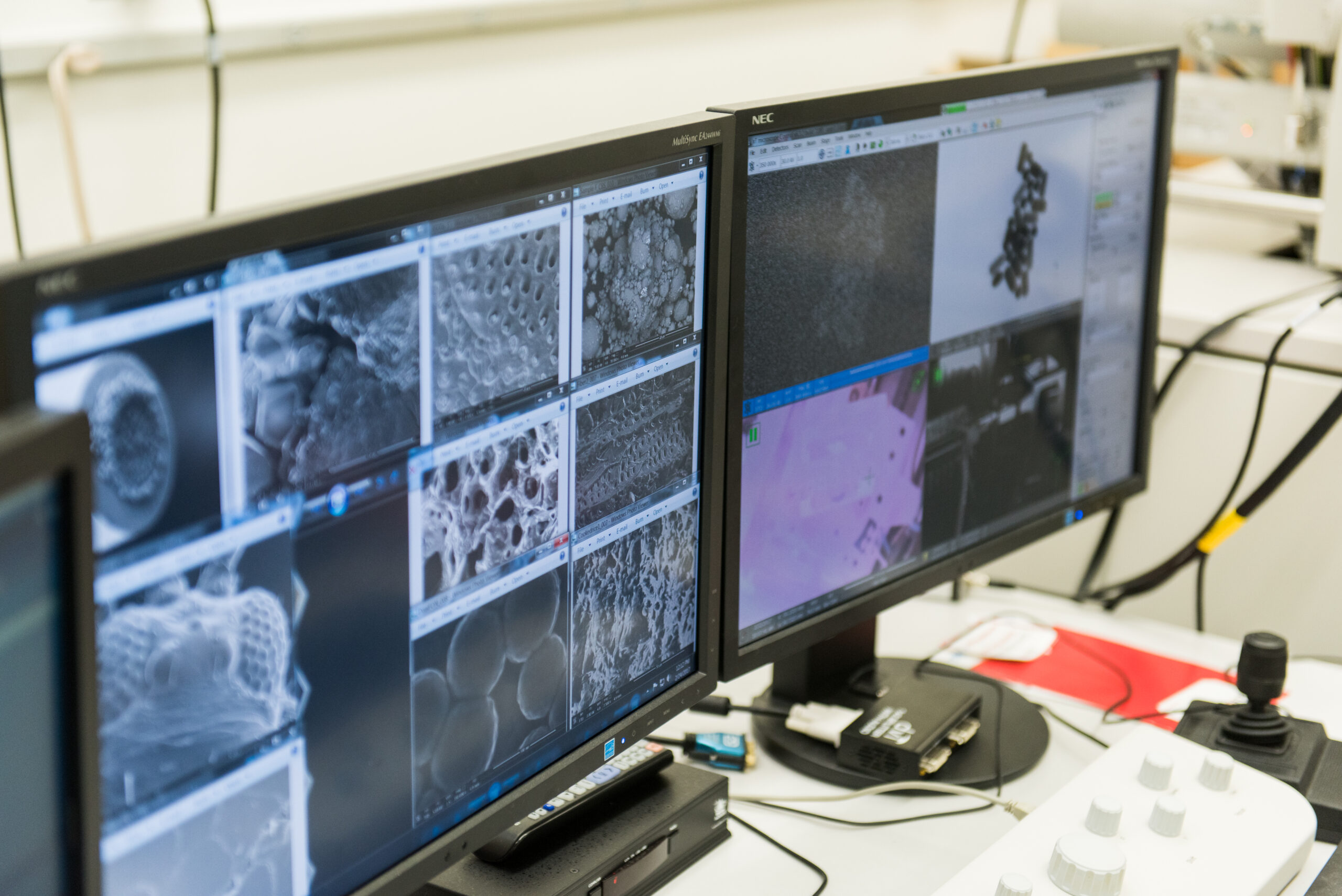The National Science Foundation (NSF) has awarded prestigious Graduate Research Fellowships (GRF) to 10 UMBC-affiliated STEM students, including eight alumni and two seniors who will soon begin their graduate studies. Their awards include a $34,000 stipend and $12,000 toward tuition and fees for each of three years.
NSF also recognized three UMBC students and five alumni with honorable mentions. Of the 17 UMBC students and alumni honored, 13 are Meyerhoff or MARC U*STAR Scholars. These programs aim to increase the number of first-generation college students, students from low-income families, and underrepresented minorities in STEM.
This large number of honorees “shows the quality of student we have here at UMBC and what they’re doing,” says Keith Harmon, director of the Meyerhoff Scholars Program. “It also shows the quality of their research experiences at UMBC, and the commitment of the faculty to mentoring these students as undergraduates.”
Randi Williams ’16, M24, computer engineering, received a fellowship for her work as a master’s student in the personal robots group at the MIT Media Lab. She studies children’s interactions with artificial intelligence and is developing a curriculum to help young children learn about AI by building, programming, and training their own autonomous robots. “I was drawn to this research because of my interest in developing a platform that helps decrease the technology gap for low-income and underrepresented communities in tech,” she says.
Williams finds the work rewarding because it combines her aptitude for engineering with her passion for education and social justice. “The greatest thing about receiving the fellowship is support and validation for my diverse research interests,” she shares. “I’m looking forward to chasing my dreams and being a bridge between disciplines.”
Jonathan Werner ’18, M26, bioinformatics and computational biology, has been conducting research with Rachel Brewster, professor of biological sciences, since his freshman year. By studying zebrafish development, “we aim to provide the basic research necessary for the future clinical treatment of neural tube birth defects, the most common birth defects in humans,” he says.
Werner’s interests span computer science and traditional experimental biology. “In graduate school, I’m hoping to join both a computational lab and an experimental lab to further train as an interdisciplinary scientist,” he says, “and winning the NSF GRF gives me the freedom to do so. It’s going to allow me to be as creative as I want when designing my graduate research projects, which I’m really looking forward to.”
Jamshaid Shahir ’18, M26, mathematics and statistics, works with Hye-Won Kang, assistant professor of mathematics and statistics, on mathematically modeling the dynamics of cell polarization—how cells develop distinct front and back ends. That process allows cells to move and transmit information. It is particularly important for wound healing, the immune system, and embryonic development.
“Winning the NSF Graduate Research Fellowship is a powerful affirmation that I can both pursue and excel in a research career,” Shahir says. “I look forward to the freedom of pursuing questions that interest me, and growing as a researcher.”
All three students spoke to the impact of their UMBC experiences on their success. Williams includes UMBC President Freeman Hrabowski among her mentors and shares, “Honestly, I wouldn’t be at MIT pursuing a Ph.D. without UMBC.” Werner adds, “I reached out to a lot of professors here asking for advice, and every single one was more than happy to help.” He also shared his gratitude for UMBC alumni mentors Keisha John ’03, M12, biochemistry and molecular biology, and Kafui Dzirasa ’01, M8, chemical engineering. Shahir is particularly thankful for UMBC’s supportive culture, including guidance he received from Kang and John. “I believe UMBC promotes a healthy balance between cooperation and competition that has motivated me to push myself harder,” he shares, “allowing me to grow as both an aspiring scientist and as a young adult.”
The honorees are pursuing graduate study at top institutions across the nation, from UMBC and MIT to Duke and Georgia Tech. Whether students receive NSF fellowships or honorable mentions, Harmon describes this level of national recognition as very meaningful validation. “I think students are always questioning, even the most accomplished,” he says. “It’s nice for them to see yes, I can do this. Another affirmation that yes, I am on the right path. I have ability. I have something to offer. There is a place for me in STEM.”
2018 UMBC-affiliated NSF Graduate Research Fellows:
William Dean ’16, chemistry
Sarah Hemler ’15, mechanical engineering
Teisha King ’16, biological sciences
Rachael Knoblauch ’15, theatre, and current Ph.D. student in chemistry
Samantha McDonald ’16, information systems
Sean Najmi ’17, chemical engineering
Jamshaid Shahir ’18, mathematics
Gwenaëlle Thomas ’16, biochemistry and molecular biology
Jonathan Werner ’18, bioinformatics and computational biology
Randi Williams ’16, computer engineering
Jasmin Zarb ’16, biochemistry and molecular biology
2018 UMBC-affiliated NSF Graduate Research Fellow Program honorable mentions:
Roy Anderson ’16, mechanical engineering
Anya Byrd ’18, biological sciences
Adrian Davey ’18, chemical engineering
Skylar Fisher, ’16, biological sciences
Alvaro Fletcher ’16, mathematics
Kori McDonald ’16, chemistry
Theresa Sheets ’18, mathematics
Image from UMBC’s Keith Porter Imaging Facility, by Marlayna Demond ’11 for UMBC.
Tags: Alumni, Biology, CBEE, ChemBiochem, CNMS, COEIT, CSEE, IS, MathStat, MechE

